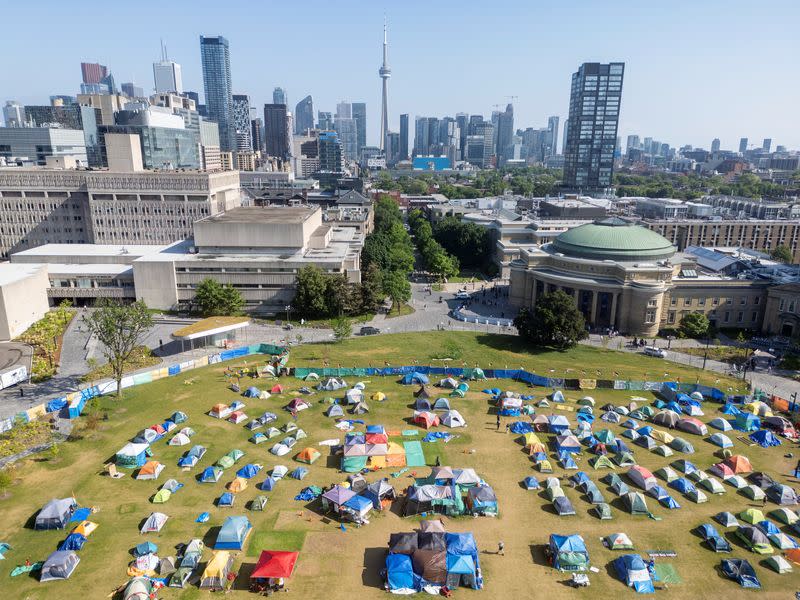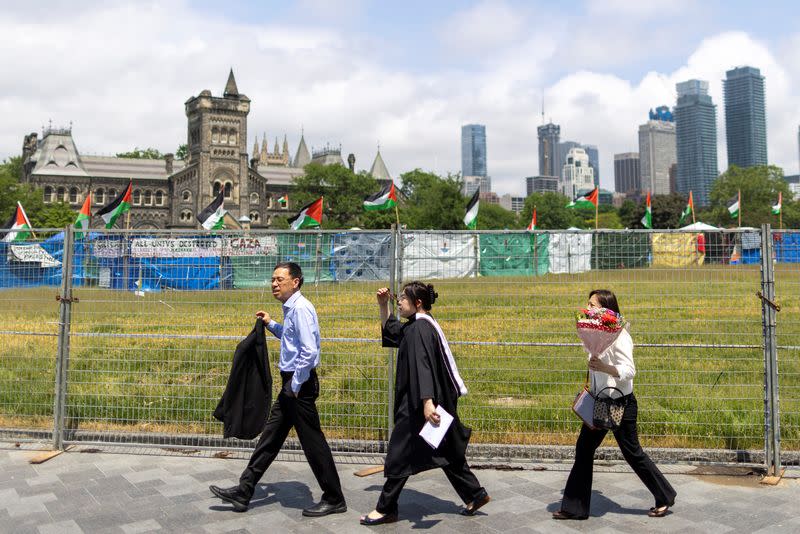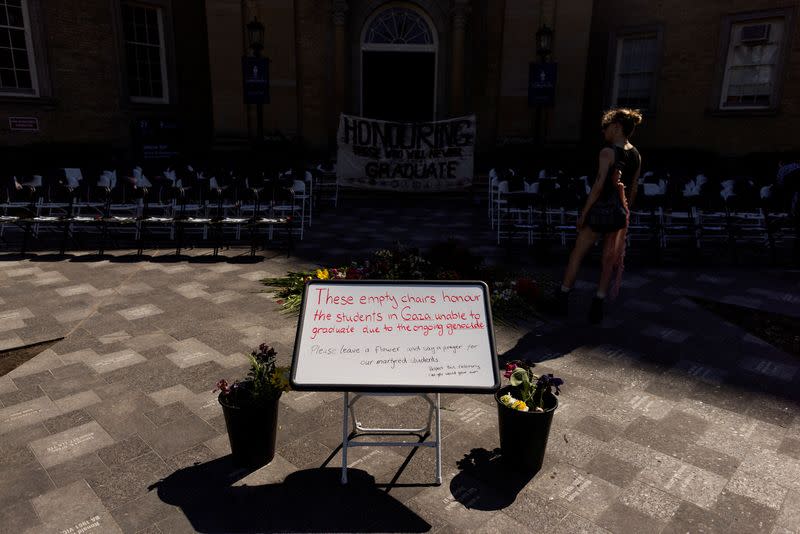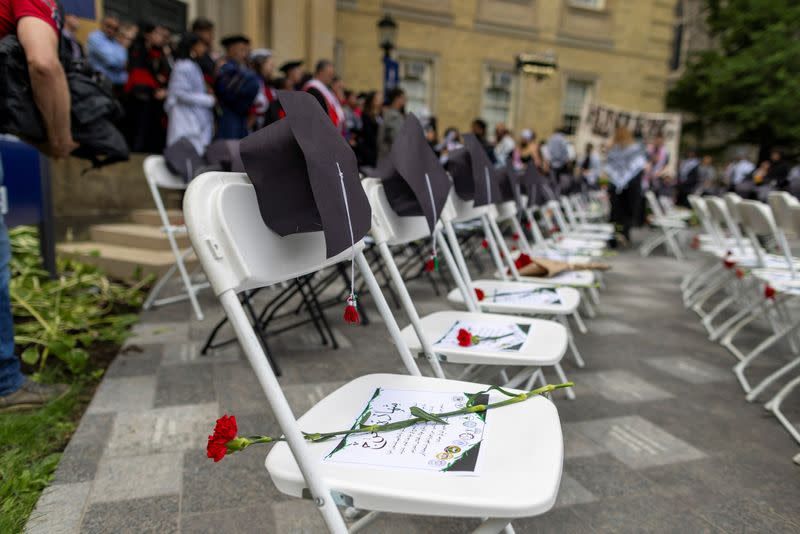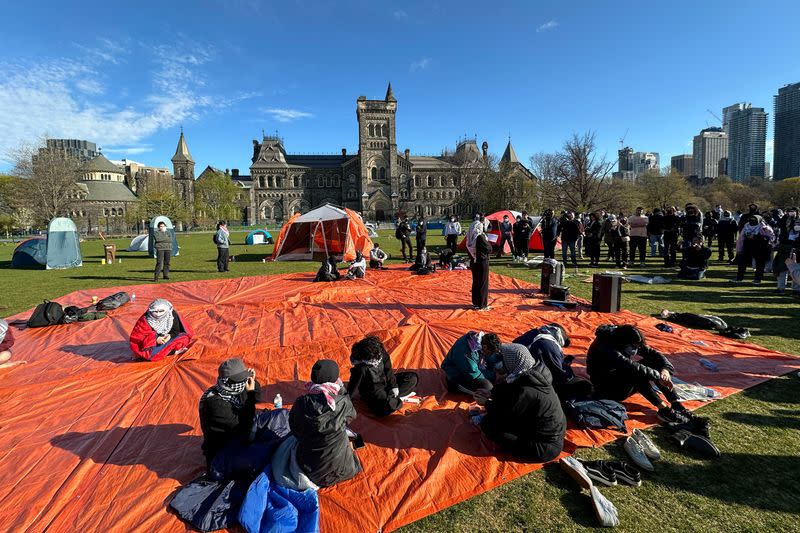Canadian court allows police to clear pro-Palestinian campus encampment
TORONTO (Reuters) -An Ontario judge ordered pro-Palestinian protesters to leave their two-month-old encampment at Canada's largest university by Wednesday evening, granting the University of Toronto's injunction request in a ruling on Tuesday.
Police were authorized to arrest and remove anyone contravening the order but protesters said the order would not stop them from campaigning for their demands.
University of Toronto student Sara Rasikh, spokesperson for the protesters, said she was "shocked, disheartened but also ready to continue applying pressure" and that the protests would continue until the university divests Israel-related investments and cuts ties with some Israeli institutions.
She said the protesters had not decided if they would comply with the order and leave.
"We don’t know what we're going to do yet. We're still trying to process the decision and we need to discuss with the community," she said.
In a statement, the university welcomed the court decision.
"We trust that those in the encampment will abide by the court order and vacate the encampment before the court-imposed deadline," the statement said. "Anyone who chooses to remain in the encampment after that deadline will be subject to consequences under university policy and the law."
The university's president said a letter had been sent to Toronto police requesting their assistance.
The university had sought an injunction that would have police clear the encampment, which has occupied a grassy part of campus for two months.
Lawyers for the university argued protesters took control of university property when they set up the encampment and are preventing others from using it, as well as harming the school's reputation and making some community members feel unwelcome or unsafe.
"The University has suffered and continues to suffer irreparable harm," it wrote in its injunction application.
Lawyers for the protesters argued the injunction sought by the university would effectively prevent the group from engaging in other forms of protest on or near campus. They argued the university is "closer in character to a public park" than private property, and people do not normally need permission to use it.
The encampment, dozens of tents in a fenced-off, poster-adorned grassy area in the centre of the university's downtown Toronto campus, has been in place since early May.
Its participants had demanded the university disclose its investments, divest from any that "sustain Israeli apartheid, occupation and illegal settlement of Palestine" and end partnerships with some Israeli academic institutions.
Last month a Quebec court granted a partial injunction to the Université du Québec à Montréal obliging protesters to create a buffer zone allowing access to campus buildings. Two attempts to obtain injunctions ending the encampment at Montreal's McGill University were rebuffed.
The death toll in Gaza after Israel invaded in response to the Oct.7 cross-border attack by Hamas has continued to mount as a global hunger monitor warns of imminent famine in the besieged enclave.
(Reporting by Anna Mehler Paperny and Saadeq Ahmed; Editing by Stephen Coates and Deepa Babington)

